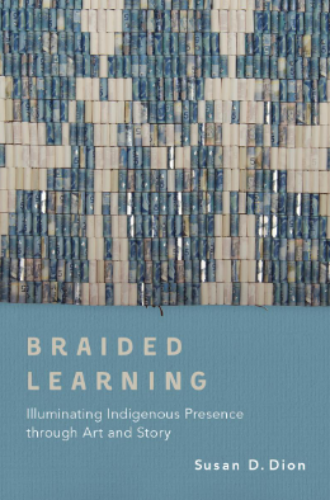The Truth and Reconciliation Commission and Indigenous activism have made many Canadians uncomfortably aware of how little they know about First Nations, Métis, and Inuit peoples. In Braided Learning, Lenape-Potowatomi scholar and educator Susan Dion shares her approach to learning and teaching about Indigenous histories and perspectives.
Métis leader Louis Riel illuminated the connection between creativity and identity in his declaration, “My people will sleep for a hundred years, but when they awake, it will be the artists who give them their spirits back.” Using the power of stories and artwork, Dion offers respectful ways to address challenging topics including settler-colonialism, treaties, the Indian Act, residential schools, the Sixties Scoop, and the drive for self-determination.
Braided Learning draws on Indigenous knowledge to make sense of a difficult past, decode unjust conditions in the present, and work toward a more equitable future.
In Braided Learning, Lenape-Potawatomi educator Susan Dion inspires engagement with the histories and perspectives of Indigenous peoples, cultivating capacities for understanding, attunement, and respect.
Introduction: Indigenous Presence
1 Requisites for Reconciliation
2 Seeing Yourself in Relationship with Settler Colonialism
3 The Historical Timeline: Refusing Absence, Knowing Presence, and Being Indigenous
4 Learning from Contemporary Indigenous Artists
5 The Braiding Histories Stories / Co-written with Michael R. Dion
Conclusion: Wuleelham – Make Good Tracks
Glossary and Additional Resources: Making Connections, Extending Learning
Notes; Bibliography
“Dion appeals to the reader to be responsible listeners, who, from an Indigenous episteme, do not interrupt the speaker, and instead listen to the whole story, from which they can gain their own insights about themselves. From this, Dion positions settler educators as responsible for learning and teaching the true history of relationships between Indigenous and non-Indigenous peoples for reconciliation to be possible.”

